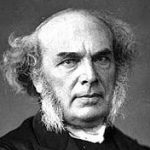This Psalm, though not attributed to David, expresses such a yearning for the place of God’s presence, that it could well have been written when David was absent from Jerusalem during the rebellion of Absalom. Matthew Henry commented, “In singing this psalm we should have the same devout affections working towards God that David had, and then the singing of it will be very pleasant.”
I. Verse 1-4 – The Dwelling Place – David contemplated the dwelling place of God as it presently existed in Jerusalem. As this Psalm shows, however, he anticipated the truth that Jesus presented to the woman of Samaria that place was irrelevant, but Spirit and truth were preeminent (John 4:21-24). The final fruition of this is after the passing away of the first heaven and the first earth, when “the dwelling place of God is with man. He will dwell with them, and they will be his people, and God himself will be with them as their God” (Revelation 21:3, 4).
A. Verse 1 – An Exclamation expresses the foundation of this Psalm. The beauty of the dwelling place of God far transcends any physical arrangement. Its beauty consists of the merciful presence of God, whose tenderness toward his people is magnified in that he is the “Lord of hosts.” He commands the armies of heaven and does with the kings of the earth as he sees fit (Isaiah 9:5-12).
B. Verse 2 – The Psalmist has unbounded affection for the place of God’s presence.
- The heart of the Psalmist has been ravished with the overwhelming beauty of God. His soul is moved so strongly at the thought that God has established courts, places where his gracious provisions are found, that it faints. He has sensed in the types of the tabernacle the complete freedom of what it means to be a son of God and to walk in his favor.
- His heart and flesh, that is, his joy is not only an internal sense of awe and wonder, but his body joins his spirit in rejoicing at the privilege of being a recipient of divine goodness. Singing comes from an overflow of heart that engages the body; the heart expresses itself with the use of words set to the mystery of music.
C. Verse 3 – Perhaps from a position of discomfort and defensiveness, the Psalmist recalled the perfect safety and quietness of God’s presence.
- He had seen a sparrow find a home in those courts. It remained unperturbed by those who entered the “gates with thanksgiving and his courts with praise” (Psalm 100:4).
- He had seen a swallow build a nest, lay her eggs, hatch her young, and care for them until they flew away. Even the most helpless of creatures finds safety and security in the presence of the mercy seat.
- Again, the appellation, “Lord of hosts,” strikes a vivid contrast between the defenselessness of the birds and the commander of all the mighty forces of heaven.
- David, now in flight like a bird, is reminded that the Lord of hosts is the same whether one is near the place of the altar or necessarily removed far from it. Still Jehovah is “my King and my God.” Sparrows know naught of his three-personed infinite excellence in goodness and truth, but rest peacefully; how much more should those who have the divine revelation of his greatness combined with perfect purpose rest without anxiety under the knowledge of his intentions for good for them.
D. Verse 4 – It is not mere physical proximity to the tabernacles of God that brings forth sincere praise. The blessedness of praise is for those who have found a true union with God through the one who tabernacled among us, Jesus the Christ (John 1:14). The scribes, chief priests, Sadducees, and Pharisees constantly loitered around the temple area (Matthew 21 – 24:2), but used their position only to challenge the claims of Jesus. Saving union with Christ brings about all true spiritual blessings and results in pure praise for the grace of God (Ephesians 1:3-6).
II. Verses 5-8 – The Strength
A. Verse 5 – Though Zion is not mentioned in this verse, the ESV picks it up from verse 7. Strength and heart go together in traveling to Zion.
- In bringing his people home, the Lord gives them the heart to desire the presence of God above all other things. Peter wrote of this transformation in these terms: “Though you have not seen him, you love him. Though you do not now see him, you believe in him and rejoice with joy that is inexpressible and filled with glory, obtaining the outcome of your faith, the salvation of your souls” (1 Peter 1:8, 9).
- They also require strength for the completion of this journey. The enemies are many. They are without and within, natural and supernatural. The world, the remnants of indwelling sin, and Satan all conspire to bring down the Christian; they seek to ruin him on the road to Zion. God’s empowering is secret but effectual. The saints often do not know how they endured certain tests and temptations, but have found them to be refining. “Count it all joy,” James advised, “when you meet trials of various kinds, for you know that the testing of your faith produces steadfastness” (James 1:2).
- The Psalms mention God as our strength around 65 times in such statements as, “And who is a rock, except out God?—the God who equipped me with strength and made my way blameless”(18:31, 32). “On the day I called, you answered me; my strength of soul you increased” (138:3). “The Lord is my strength and my song; he has become my salvation” (118:14).
- Paul prayed for his churches what he experienced himself;
- Strength for joyful endurance: “May you be strengthened with all power, according to his glorious might, for all endurance and patience with joy” (Colossians 1:11).
- Strength of mind and heart to grasp the immensity of divine truth: “according to the riches of his glory he may grant you to be strengthened with power through his Spirit in your inner being . . . being rooted and grounded in love, may have strength to comprehend with all the saints what is the breadth and length and height, and depth, and to know the love of Christ that surpasses knowledge” (Ephesians 3:16-18).
- “At my first defense no one came to stand by me, . . . but the Lord stood by me and strengthened me, so that through me the message might be fully proclaimed and all the Gentiles might hear it” (2 Timothy 4:16, 17).
B. Verse 6 – God’s strength turns waste places to oases of refreshment.
- The “Valley of Baca” seems to be a place given over normally to great sadness. One commentator identified “Baca” with “tear-shrubs.” It could be related to the word for bochim which means a profuse outpouring of weeping (Judges 2:1-5).
- For those who have their eyes on Zion because their heart is there, even that which would be a place of desolation in the world becomes a place of refreshment. They will not be deterred by the oppressiveness of the journey but will find present difficulty and sadness and weeping a greater stimulant for the glory of the heavenly city. The God of the city will “wipe away every tear from their eyes, and death shall be no more, neither shall there be mourning, nor crying, nor pain anymore, for the former things have passed away” (Revelation 21:4).
- “The early rain”—not only the prospect of that divinely good place encourages us on this journey, but the seal of the Holy Spirit, that is, the presence of the Spirit in our lives as a portion of the refreshment of heaven already is with us (Ephesians 1:13, 14; 2 Corinthians 1:22).
C. Verse 7 – Every experience becomes an occasion for increased strength.
- When God is strengthening us both in knowledge and in purity of heart, establishing a more consistent desire for the journey to Zion, every event of life increases strength. We truly can see that “God works all things together for good to those who love God and are the called according to his purpose” (Romans 8:28).
- They will appear before God in Zion. He will not let them fall. His sheep are safe in his hand. “My sheep hear my voice, and I know them, and they follow me. I give them eternal life, and they will never perish, and no one will snatch them out of my hand.” (John 10:27). God has begun this work in us and he will bring it to completion (Philippians 1:6).
- The Second London Confession states, “Those whom God hath accepted in the beloved, effectually called and sanctified by his Spirit, and given the precious faith of his elect unto, can neither totally nor finally fall from the state of grace; but shall certainly persevere therein to the end and be eternally saved, seeing the gifts and calling of God are without repentance.”
D. Verse 8 – Zion’s Travelers have a prayer-hearing God. All of these gifts of grace, though unilaterally and unconditionally given, still accompany the prayers of his people. “O Lord of hosts, hear my prayer; give ear, O God of Jacob.”
- Certainly the Lord of hosts is strong and the God of Jacob is a God of perfect providence. The natural yearning of the heart of the regenerate is to depend on God, implore God for more grace, and to desire his guidance in all ways.
- They know that “my God will supply all your needs according to his riches in glory in Christ Jesus,” (Philippians 4:19), and that his occurs “through your prayers and the help of the Spirit of Jesus Christ” (Philippians 1:19).
- Paul, having his soul flooded with the beauty of absolute sovereign grace in the dispensing of all blessings, also told the Corinthians, “He delivered us from such a deadly peril, and he will deliver us again. You also must help us by prayer, so that many will give thanks on our behalf for the blessing granted us through the prayers of many” (2 Corinthians 1:11).
III. Verses 9-12 – Every Good and perfect Gift
A. Even when away from the designated place of God’s presence, nevertheless he is our protection. The Psalmist called upon God for favor in two ways (Verse 9).
- He remembers the revelation to his soul as recorded in Psalm 3:3 as he fled from Absalom, “But you, O Lord, are a shield about me, my glory and the lifter of my head.” Had not God Himself said to the father of the nation, “Fear not Abram, I am your shield; your reward shall be very great” (Genesis 15:1). In the wild fluctuations of apparent fortune in the lives of persons and the history of the world, God’s people have the unchanging assurance that he alone is their protection from all these fiery darts of the wicked one—He alone is their shield (Ephesians 6:16).
- We have a mediator, an advocate, the Anointed One, the Christ. He ever lives to make intercession for us, even as he did for David and for all his chosen ones. Before his incarnation, he did this on the basis of the certainty of the covenant and his eternal pledge to give his life as a ransom, a propitiation for them, and in their stead. Now the work is completed and he is seated in his glorified body at the right hand of the Father. “We have an advocate with the Father, Jesus Christ, the Righteous” (1 John 2:1). Though David was the anointed one as the king through whose lineage the Messiah would come, the one upon whose face to look will always gain the Father’s favor is the Lord Christ Himself.
B. The superiority of God’s presence to any earthly advantage (Verse 10).
- The point of the comparison of these numbers (“a day . . . is better than a thousand”) is the infinite superiority of the presence of God to the presence and favor of the most sublime earthly situation. That day, of course, will be the one eternal day when we “dwell in the house of the Lord forever.”
- If one were assigned to the most menial and elementary task in the place where God s’ presence is unbounded and his authority is recognized with joy by all the residents, such would be incomparably superior to a place of the most elevated situation in the tents of the wicked. No matter how powerful, rich, and benign the wicked appear, their glory lacks the excellence of the beauty of holiness that is the permanent and unfading glory of God’s house.
C. God Himself is the good thing we desire (Verse 11).
- As a Sun, God Himself scatters the dark distress of sin; He opens the mind to truth by the light of his word and puts our dark ignorance in a permanent state of retreat. He removes the dark shadow of death and replaces it with the light of life. Even the sun and the moon lose their relevance in the place of God’s dwelling for “the glory of God gives it light” (Revelation 21:23). Even here, if we “walk in the light as He Himself is in the light, we have fellowship with one another and the blood of Jesus Christ his Son cleanses us from all sin” (1 John 1:7).
- Again, David presses the image of a shield. He is the sure protection from the dangers that threaten the sure prize of eternal life. Nothing can separate us from the love of God which is in Christ Jesus our Lord.
- The lives of God’s anointed, so seen by virtue of their union with the Anointed One, are flooded with abundance of grace. He bestows “favor and honor” and withholds “no good thing from those who walk uprightly.”
- All spiritual blessings already are ours in heavenly places in Christ Jesus by virtue of his electing grace (Ephesians 1:3) and have been positively obtained by virtue of Jesus’ atoning work (Romans 8:32).
- Those who trust will walk uprightly. Their change of mind and change of heart by the Spirit has placed before them a prize which they value above all other things and they press on toward this prize (Philippians 3:12-14).
- They know that God Himself will strengthen them for this: “And after you have suffered a little while, the God of all grace, who has called you to his eternal glory in Christ, will himself restore, confirm, strengthen, and establish you. To him be the dominion forever and ever. Amen” (1 Peter 5:10, 11).
D. There is a peculiar blessedness that comes to those who trust in the Lord. The Psalmist summarizes the whole of his argument, epitomizes the impression of the graces he has mentioned by reminding the reader that the one with whom we have to do is the “Lord of Hosts.” Nothing is outside his authority, prerogative, or real power. This is the one who blesses those who trust in Him.

















